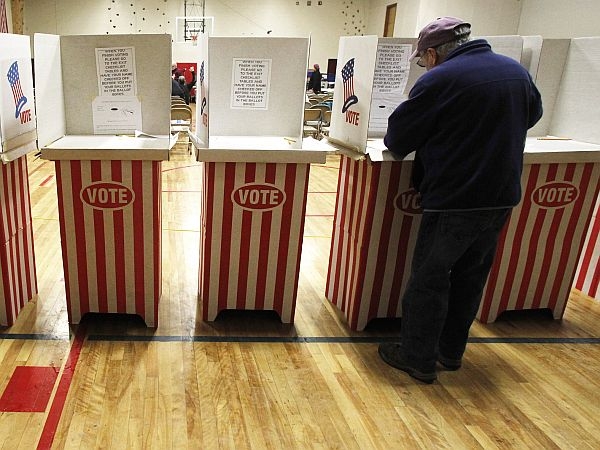
For the most part, local school budgets fared reasonably well on Town Meeting Day. But local school officials say budget pressures will continue to grow in the coming years.
There was a lot of uncertainty about the fate of many school budgets because the statewide property tax rate is going up by roughly 5 percent.
220 budgets were adopted and 16 were defeated – that’s close to the state average for the past 10 years. Steve Dale is the executive director of the Vermont School Boards Association.
"I think it’s safe to say that people strongly support the good work of school boards and they strongly support their local schools."
Of the 16 budgets that were rejected, Dale says one plan increased spending by 19 percent while another one actually cut spending.
"There’s not really a pattern here that you could say would be a statewide pattern," said Dale. "These are all about local conversations and whether or not the local voters felt that the budgets were put together appropriately and fairly."
Over the past 4 years, only ten out of roughly 1000 budgets have come under the jurisdiction of what’s known as the "two vote" provision. This process is triggered if the budget increase is larger than inflation plus one percent, and the town exceeds the state average for per student spending.
If this happens, voters consider two ballot items. One represents spending within the inflation rate, and the second includes all spending above the rate. 20 towns qualified this year. 15 passed both budgets, 4 had split votes, and in one case, both ballot items were rejected. Dale is not a fan of the two vote approach.
"We think it’s far more reasonable to put in front of voters here’s what your school board has put together either you like it or you don’t like it."
Montpelier voters faced the two vote provision this year and they supported both budgets. Superintendent Brian Ricca says the school board did an excellent job of educating voters about a budget that contained some staffing reductions.
"We needed to take a good hard look at our enrollment numbers and really be careful about our staffing and our programming," said Ricca. "The Board was very clear with me that they wanted to ensure that programming that had participation be it during the school day or after school was given priority band was funded."
And Ricca says there’s no doubt that pressure on local school budgets will increase in the years to come.
"The reality is there will continue to be hard decisions the boards and the communities will be faced with as we look at our budgets over the next couple of years because it wouldn’t be sustainable to expect increases that we’ve seen to continue."
The "two vote" budget process will expire this year unless lawmakers vote to reauthorize it.